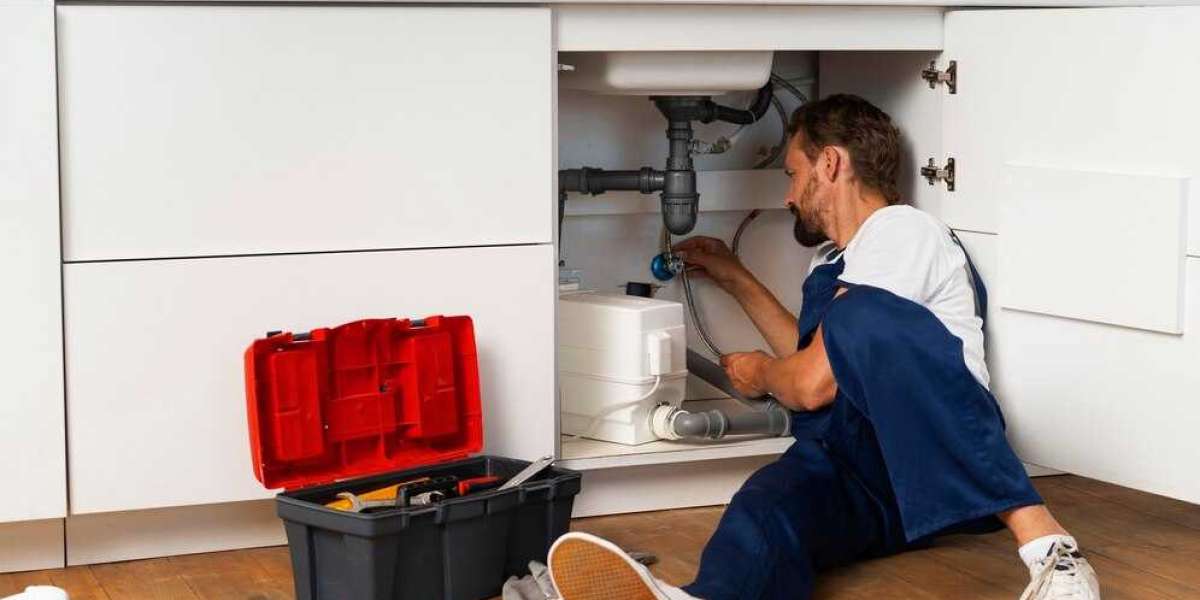Everything You Need to Know About Air Conditioning Installations
Installing air conditioning units is a significant investment that can greatly enhance the comfort of your home or office. Whether you're upgrading an existing system or installing a new one, understanding the process and knowing what to expect can save you time, money, and stress. In this comprehensive guide, we'll delve into the details of air conditioning installations, helping you make informed decisions.
Introduction
Air conditioning installations are essential for maintaining a comfortable indoor environment, especially during hot summer months. With advancements in technology, modern air conditioning systems are more efficient and environmentally friendly than ever before. However, installing an air conditioning system is not a simple DIY project. It requires careful planning, selection of the right unit, and professional installation to ensure optimal performance and longevity.
The Importance of Air Conditioning Installations
Air conditioning installations are crucial for several reasons. They provide comfort, improve air quality, and enhance energy efficiency. Properly installed air conditioning systems can regulate indoor temperatures, reducing humidity and preventing the growth of mold and mildew. This creates a healthier living environment and can also increase the value of your property.
Types of Air Conditioning Systems
There are several types of air conditioning systems available, each with its own advantages and disadvantages. The most common types include:
Central Air Conditioning Systems: These systems use a network of ducts to distribute cool air throughout the home. They are ideal for larger homes and provide consistent cooling.
Ductless Mini-Split Systems: These systems are perfect for homes without ductwork. They consist of an outdoor unit and one or more indoor units, offering flexible and efficient cooling.
Window Units: These are single-room units that are installed in a window. They are affordable and easy to install but are not suitable for cooling large areas.
Portable Air Conditioners: These units can be moved from room to room. They are convenient but may not be as efficient as other types of systems.
Choosing the Right Air Conditioning System
Selecting the right air conditioning system for your home or office is crucial. Consider the following factors:
Size of the Space: The size of the area you need to cool will determine the capacity of the unit. An undersized unit will struggle to cool the space, while an oversized unit will cycle on and off frequently, reducing efficiency.
Energy Efficiency: Look for units with high SEER (Seasonal Energy Efficiency Ratio) ratings. Higher SEER ratings indicate more energy-efficient units, which can save you money on your energy bills.
Budget: Determine your budget before shopping for an air conditioning system. While more efficient units may have a higher upfront cost, they can save you money in the long run.
Features: Modern air conditioning units come with various features such as programmable thermostats, Wi-Fi connectivity, and advanced filtration systems. Choose a unit with features that meet your needs.
Professional Installation
Professional installation is critical to ensure your air conditioning system operates efficiently and safely. Here’s what to expect during the installation process:
Assessment: A professional technician will assess your home or office to determine the best type and size of the unit for your space.
Installation: The installation process involves setting up the indoor and outdoor units, connecting the refrigerant lines, and configuring the thermostat. Proper installation is key to the system’s performance and longevity.
Testing: After installation, the technician will test the system to ensure it is working correctly and efficiently. They will also provide instructions on how to use and maintain the system.
Maintenance Tips for Air Conditioning Systems
Regular maintenance is essential to keep your air conditioning system running smoothly. Here are some tips:
Change Filters Regularly: Dirty filters can reduce the efficiency of your system and lead to higher energy bills. Check and replace filters every one to three months.
Clean the Coils: The evaporator and condenser coils can accumulate dirt over time, reducing efficiency. Clean the coils annually to maintain optimal performance.
Check the Refrigerant Level: Low refrigerant levels can affect the cooling capacity of your system. Have a professional check the refrigerant level and refill it if necessary.
Inspect the Ductwork: Leaky or blocked ducts can reduce the efficiency of your central air conditioning system. Inspect the ductwork regularly and seal any leaks.
Common Problems and Solutions
Even with proper maintenance, air conditioning systems can encounter problems. Here are some common issues and their solutions:
System Not Cooling: This could be due to a dirty filter, low refrigerant, or a malfunctioning thermostat. Check the filter and thermostat, and call a professional to check the refrigerant level.
Strange Noises: Unusual noises can indicate problems with the motor, fan, or compressor. Turn off the system and call a technician to diagnose and fix the issue.
Water Leaks: Water leaking from the unit can be caused by a blocked drain line or a refrigerant leak. Clear the drain line and call a professional to check for refrigerant leaks.
Energy Efficiency and Cost Savings
Investing in an energy-efficient air conditioning system can lead to significant cost savings over time. Here are some tips to maximize energy efficiency:
Use a Programmable Thermostat: Set the thermostat to a higher temperature when you are not at home and lower it when you return. This can reduce energy consumption.
Seal Windows and Doors: Prevent cool air from escaping by sealing windows and doors. This reduces the workload on your air conditioning system.
Insulate Your Home: Proper insulation can keep your home cooler in the summer and warmer in the winter, reducing the need for constant temperature adjustments.
The Future of Air Conditioning
The future of air conditioning is focused on improving energy efficiency and reducing environmental impact. Innovations such as solar-powered air conditioning units, advanced refrigerants with lower global warming potential, and smart technology integration are paving the way for more sustainable cooling solutions.
Air Conditioning Installations
Air conditioning installations can be a daunting task, but with the right knowledge and professional help, it can be a smooth and rewarding process. Whether you're installing a new system or upgrading an existing one, make sure to choose the right unit, follow professional installation procedures, and maintain the system regularly to enjoy years of comfort and efficiency.
FAQs
What size air conditioning unit do I need for my home? The size of the air conditioning unit depends on the square footage of your home and other factors such as insulation and window placement. A professional technician can perform a load calculation to determine the appropriate size.
How often should I replace the filters in my air conditioning system? Filters should be checked and replaced every one to three months, depending on usage and the type of filter. Regular replacement ensures optimal efficiency and air quality.
Can I install an air conditioning system myself? While some small units, like window air conditioners, can be installed by homeowners, larger systems like central air conditioning require professional installation to ensure safety and efficiency.
What is SEER and why is it important? SEER stands for Seasonal Energy Efficiency Ratio. It measures the efficiency of an air conditioning unit over a typical cooling season. Higher SEER ratings indicate more efficient units, which can lead to lower energy bills.
How can I improve the efficiency of my air conditioning system? Regular maintenance, such as changing filters and cleaning coils, can improve efficiency. Additionally, using a programmable thermostat, sealing windows and doors, and insulating your home can help reduce energy consumption.
What are the benefits of a ductless mini-split system? Ductless mini-split systems offer flexible installation, energy efficiency, and the ability to cool individual rooms independently. They are ideal for homes without existing ductwork.
Conclusion
Air conditioning installations are an important investment in the comfort and efficiency of your home or office. By understanding the different types of systems, selecting the right unit, and ensuring professional installation and regular maintenance, you can enjoy a cool and comfortable indoor environment for years to come. Stay informed about the latest advancements in air conditioning technology to make the best choices for your needs.











